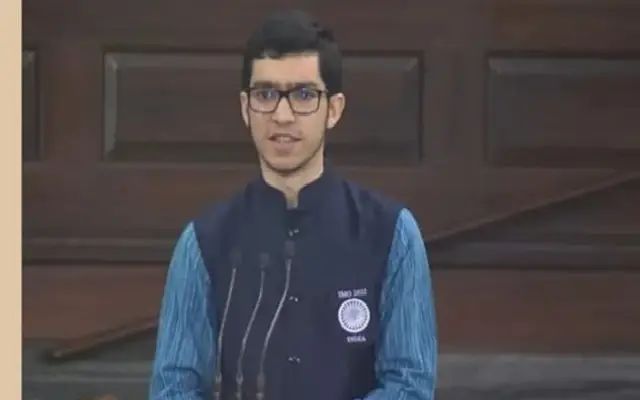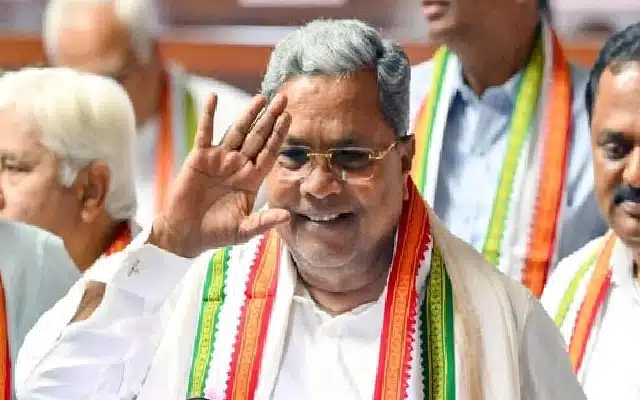
Dr V Basil Hans, Associate Professor of Economics and Dean, Faculty of Arts, St Aloysius Evening College, Mangaluru
The policy of protection, i.e., restrictions on international trade, is very helpful and still relevant – in the present era of globalisation – for the less developed or developing countries (LDCs). In fact LDCs like India can be categorized as ‘emerging’ countries due to the success of planned growth and managed globalisation.
A protectionist trade policy allows the government of a country to promote domestic producers, and thereby boost the domestic production of goods and services. … by imposing tariffs or otherwise limiting foreign goods and services in the marketplace.
Reasons
Protecting the infant industry.This is the most traditional excuse & is often used by developing countries. They claim that they have many sunrise industries with great potential to be transformed into international business. However, at the meantime they yet to realise the cost advantages from economies of scale. They need time to enlarge their market share, trained their labours & learn to produce via the most cost-efficient method. As such they need ‘temporary’ protection from low-cost foreign producers until they are able to compete on equal footing. So tariffs are put up, making the once-cheap foreign goods to be artificially expensive. Local producers can now raise the price of their goods & thus enable them to enjoy some profits.
Evaluation: However, there problems appear to be bigger than the solution. Firstly, once protectionist measures are erected it is so politically unpopular to remove it. People with special interests will always convince policymakers that further protection is justified. Secondly, it is very difficult for a government to decide which industries that really have the potential comparative advantage & therefore merit protection. If the industry turns out to be not having a good chance, then this is an enormous waste of financial resources. Lastly, this argument is not that relevant to developed nations like US, Germany & Japan where most of its industries have reached maturity stage.
(2) Protecting jobs. At any given time in an economy, there will also be some industries which are declining (sunset industries). Normally firms in this industry have reached maturity stage but yet inefficient. Let’s consider US. In 2002, President Bush imposed the controversial 8-30% steel tariffs after mounting pressure from industry leaders & increasing number of steel mills that went under administration. If there was no further action taken, probably structural unemployment would have increased even more. Let’s not forget that there are many industries that are steel related. So bankruptcy of mills have negative spill over onto others.
Evaluation: However, we can also argue that jobs protection in steel mills is at the expense of other businesses. First, think of the US producers of cars, bikes & other goods which are forced to use more expensive US steel. They’ll see an increase in the production costs which will force them to raise prices, thus losing customers. This will cause reduction of jobs in those industries. Or, to mitigate sudden increase in costs firms often resort to downsize its workforce. So whose job is more important, the steelworker’s or auto producer’s?
(3) Revenue. In many developing countries, it is quite difficult to earn sufficient revenue from income tax & corporation tax. This is because, the level of unemployment is usually high & there are very few large firms around. Therefore the governments impose tariffs onto foreign goods in order to raise the desired revenue. From the diagram below, revenue from tariff is given by the area of KLMN.

Evaluation: However it is worth to take that not all developing nations have the freedom to impose tariffs. Consider those Sub Saharan African economies. Many of them have considerable comparative advantage in agriculture sector & production of minerals like diamonds, gold, copper etc. Their economic & political will are somehow tied due to the high level of debts to IMF. They are forced to undergo strict Structural Adjustment Policies (SAP) which among require them to liberalise their economy.
(4) National security. Some governments admit that although they may not have comparative advantage in the production of a good, protectionist measures must be maintained to ensure their survival. Agriculture & steel industries can become strategically important especially in time of crisis or war where they are easily cut off. In Japan, very high restrictive quotas & tariffs are placed on rice. The farmers need to be protected so that they can grow enough food to feed the Japanese in crisis. The same reason for US which wants protection for its steel industry so that they can produce sufficient tanks & munitions during an international conflict.
Evaluation: However, this argument is often overstated. In many cases, it is unlikely that a country which goes on war or in crisis be cut off from all supplies. It is merely an excuse to erect protectionism.
(5) Protect consumers from unsafe products. Very often consumers are unaware of the quality & safety of the products they consume. Therefore we have the government stepping in to act as an agent guaranteeing consumers product safety. Cars must pass safety inspection, rules are made regarding types of chemicals that can be used onto food etc. Having said so, different countries have different standards that might not conform to other beliefs about product safety. For instance, the famous EU ban on US beef & dairy products claiming that the cattle have been injected with hormones to increase its size & milk production. The US government defends itself by saying that this does not pose a risk to consumers & EU medical authorities have no hard evidence for this.
Evaluation: However, it is believed that there is no safety issues involved here. What EU did was actually to protect its inefficient beef & dairy producers like France & Spain. Also this form of ‘obvious’ protectionist measure often invite retaliation. This was the case as later in 1999, US retaliated by imposing trade sanctions against dairy goods from EU worth more than $117 million. In return, it harmed those EU farmers as much as it hurt those in US.
(6) Discourage unethical practices. Sometimes a country might wish to impose trade restrictions to force a change in other countries. For instance, tariffs are placed onto shoes & textile from East Asia to exhibit dissatisfaction & a form of ‘boycott’ against the working practices there. In China employees have to endure long working hours & yet ill-paid. Also in many instances, these employers fail to comply with compulsory health & safety legislations thus giving them artificial cost competitiveness. Also trade restrictions are a method to show dissatisfactions with some like African nations as the money is used to finance civil war & terrorism within Africa.
(7) Protection from dumping. Dumping is an act of selling large quantities of a good in another country at price below its production costs. For example, EU has large surpluses of butter & milk. Therefore it decided to sell these at a very low price in another developing economy. If that particular country does not have any form of protection onto its local dairy industry, very soon all those dairy farmers will be driven out of job.
Evaluation: However, it is very difficult to distinguish whether the case of dumping is purely done with intention to drive out local industries or the exporting countries really enjoy significant EOS.
(8) Narrowing BOP deficit. One of the arguments for protectionist measures is also to fix the deficit in balance of payments particularly current account. It is hoped that with more expensive foreign goods, its demand will fall in relation to exports. As such over the time current account deficit will be narrowed. The IMF actually allows member countries to impose temporary trade restrictions to get their BOP fixed.
Evaluation: However, this is more like a short run solution. To seek for long run remedy, it is best if the particular country identifies the root cause for deficit. Is it due to lack of commitment onto education & healthcare sector? Could it be accrued to low level of investment onto capital equipments? Chances to narrow the deficit will increase if solutions to boost exports and cut imports are both taken simultaneously. Also a government will have to be careful not to impose excessive import tariffs onto intermediate goods. Or else, production costs will increase & exports fall at a faster rate than imports. BOP deficit worsens.
(9) Cultural preservation. This is a non-economic reason. In some countries like Canada, various forms of restrictions such as 80% tax are put onto US sales of publications, magazines & textbooks. In 1990s this cultural protectionism was expanding to kill off US ‘intruders’. Critics argued that without media protection, US magazines like Time & Business Week could soon deprive Canadians of the ability to read about themselves. In short, to filter the cultural imperialism
Importance
The importance of protection in LDCs is clear from the following points –
- Most of the LDCs have infant industries which need special privileges as they are young/immature and have a long way to go in growth and trade
- Agrarian economies need special protection vis-à-vis industrial economies as they have to always face larger uncertainties of prices, demand, competition etc. Pigou writes: “The case for protection with a view to building up productive power is strong in any agriculture country which seems to possess natural advantages for manufacturers
- Due to economic exploitation and secular deterioration in terms of trade (as explained by Marxian economists as well as by Prebisch, Singer, Myrdal and others), limited gains from trade is a common phenomenon in LDCs. ‘Immiserising growth’ (as explained by Bhagwati) is experienced by most LDCs. Therefore, in order to shift the terms in favour of these countries, protection is justified
- LDCs can diversify their industries as well as composition of trade by a good policy of protection
- Protection by LDCs should not be resented or retaliated by the developed countries because the nature of import restrictions of these countries differs from that of the developed countries. Tariffs are imposed by these countries mainly to utilise the available foreign exchange earnings for the import of capital and commodities essential for economic development, rather than for having luxury articles.
- Protection from the side of LDCs is also justified by their needs of stepping up the rate of capital formation and economic growth via foreign exchange earrings and savings
- Improvements in BoP through increased revenue and employment generation is another justification for protection in LDCs
- Protection by LDCs will help developed countries also due to increase in income and investments leading to trade, strengthening the economy of the world as a whole, rather than creating ‘dual economies’ in the LDCs or disequalising forces between countries
- Globalisation (sometimes appearing like only market integration!) is not a panacea. In 1997 the Asian ‘tigers’ in 2002 Argentina and later the US, India etc. – have all been in trouble. We cannot simply depend on world bodies like IMF.
- From the point of view of practical politics also, protection may become inevitable. In a world torn with strife and power politics, every nation is forced to have a solid defence self-sufficiency and full employment. These cannot be achieved without evolving a tariff policy suited to the needs of the country. Most of the developing countries have secured their independence very recently. They must have a strong defence
To conclude a policy of restricted trade is better than general liberalisation for backward and emerging economies. Until all economies are equally strong and competitive we must accept protection as a desirable and inevitable policy, subject, however, to the principles of efficiency, equity and economy. For a complete free trade regime to be successful it is necessary to derive benefits from effective protection. In short, there has to be a “level playing ground”.
About the author:
Dr V Basil Hans has been teaching at St Aloysius College instituitions for the past three decades. He has produced six MPhils and three PhDs. He has written more than 200 articles in journals, books and newspapers in English and Kannada. He is serving as honorary editor in more than 30 journals. He has presented papers in more than 75 conferences. He has written more than 20 books. His book on Digital Banking will be translated into eight foreign languages.
















